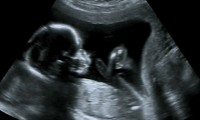-
Invention of Sensor to Monitor High Risk Pregnancies
- Source: The Verdict
- 909
- July 24, 2018
-
A Significant Global Problem
- Source: medicalnewsbulletin
- 877
- October 18, 2017
your submission has already been received.
OK
Subscribe
Please enter a valid Email address!
Submit
The most relevant industry news & insight will be sent to you every two weeks.





